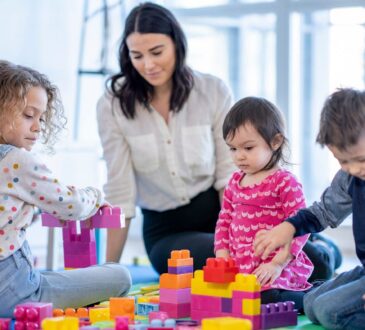

The passing of a loved one is never easy on anyone. Though everyone copes with grief and loss differently, it is the kids (pets included) that seem to take it the hardest. Still not mentally developed enough to comprehend it all, and suffering an overwhelming period of sadness, they can react to death in a number of ways.
Small children can’t grasp reality and may think of it as temporary, older children are more emotional and may lash out, and pets exhibit extreme changes in behaviors. Helping them cope with the grief and develop a new normal will require a great deal of strength on your part. Here are some suggestions below:
Communicate – hiding the fact that someone died isn’t going to make things any better. Once you’ve gotten yourself together, share the news with your children. Use clear and definitive language to eliminate confusion.
Watch Closely – For your children and your pets, the first few days and weeks following the news that a loved one has passed are critical. They may appear fine when you have the initial conversation but show difficulties coping later on. If you notice that your child is isolating themselves, lashing out at others, misbehaving in school, not eating, or barely sleeping, these are signs they need additional help and support. Your dog, can’t talk, but may also isolate themselves, stop eating, and lose their perkiness. They can also do quite the opposite and develop what is known as dog fomo where they fear missing out on something so they start following you all around or becoming increasingly needy for your time and attention.
Keep Normal Routines – Death can make children very insecure and unstable. Someone they’re used to interacting with on a regular basis is gone, and life as they knew it has taken a serious turn. They need the stability of routines to keep them grounded and focused. After taking a few days off to grieve, get back to normal processes including school, extracurricular activities, meal times, and whatever else your day consists of.
Listen and Comfort – As time goes on there will still be periods of highs and lows as you and your family cope with a loss. Your children may have things they want to express. When they do want to talk, your job is to be a good listener. Listen to their feelings and then provide comfort and sound advice when warranted.
Know When There’s Trouble – It’s true children grieve differently, and moving on from the passing of a loved one can take time. Being a great listener, comforter, and providing sound advice are all recommended, but if you notice things are getting worse, there are other means to help your children. Your teen might need to be suffering from depression and need to be seen by a therapist whereas, your dog may need treatment options for anxiety such as herbal supplements or prescribed medications from the vet.
When someone you cared for deeply dies, the news and experiences thereafter can be emotionally challenging. As you tend to your own needs during this difficult time, it is imperative that you give extra love and attention to your kids and pets. They are often unable to express themselves and can have a hard time coping. Being there, listening, offering words of encouragement, giving them space, and knowing when things are escalating are all effective ways to help them get through to brighter days.




